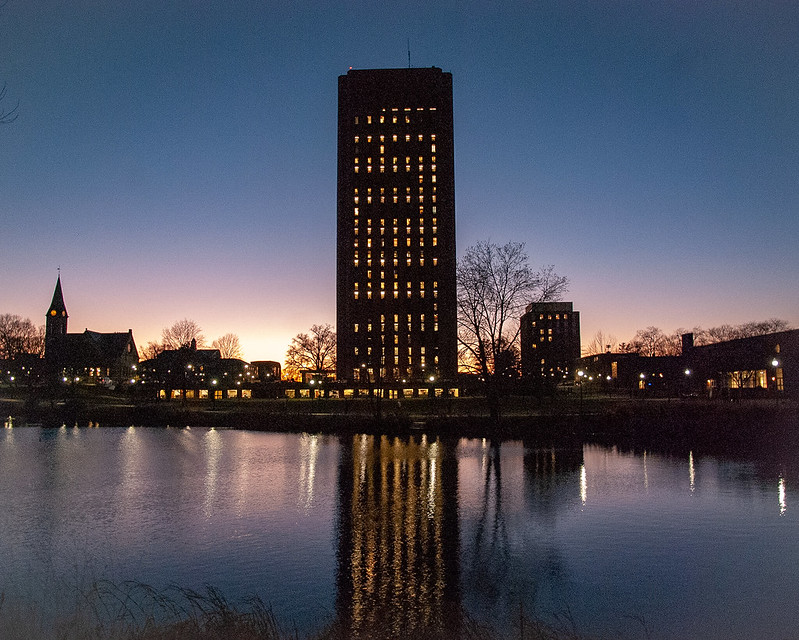In my three months at the University of Massachusetts as a student arriving from abroad, I have observed a notable trend among my peers — we often gravitate towards our own cultural groups. While seeking comfort in familiar faces is natural, it raises concerns about our ability to break out of our social bubbles and connect with domestic students. This challenge isn’t unique to me; conversations with my seniors highlight the difficulty of forming authentic bonds with Americans when stuck in a cultural enclave.
This trend is exacerbated by the University’s current housing policies, such as break-housing, which, while well-intentioned, inadvertently contribute to this isolation. Since most international students lack alternative accommodations, they often choose break-housing dorms, which predominantly house other international students. On my side of the first floor, I don’t think any of the residents are domestic students, creating a divide — whether it be intentional or not — in living spaces.
Conversely, the fourth floor of my dorm houses a majority of domestic students with relatively fewer international students. The uneven placement perpetuates a separation, hindering the potential for cross-cultural interactions.
Strategic placement of students in dorms could mitigate this division and encourage more interaction between domestic and international populations. Alternatively, the University could establish a system to assign domestic peer mentors to willing international freshmen, assisting them in navigating the challenges of adapting to a new culture. The University can also allocate additional resources to initiatives that facilitate integration with the general population. These initiatives may encompass targeted programs, events and activities designed to bridge cultural gaps and create shared experiences. Diversity isn’t just about having students from different backgrounds or co-locating students from different countries; it’s about fostering integration and comfort among all students.
It is important to recognize there may be some students that prefer these safe spaces. To address this, UMass could consider offering international-majority dorms as an opt-in choice for students who value the comfort of being with familiar peers.
As a Massachusetts-born individual who came from outside the country to UMass with the prospect of connecting with my roots, meeting domestic students and immersing myself in American culture, I have faced this problem. The challenge becomes especially pronounced when discussing students who have never visited the U.S. and don’t have connections. While some may argue there are many ways to make friends outside of the dorms, residence halls are arguably one of the easiest places to make friends. Freshmen living in dorms are surrounded by other freshmen who share the same experiences. Additionally, merely the act of speaking out can be extremely challenging when coming from a culturally different country.
The intricacies of navigating a new social landscape are often underestimated. Imagine arriving in a country where the cultural nuances are vastly different, where social norms and conversational etiquettes might be alien. This adjustment goes beyond simply making friends; it is about understanding and adapting to a whole new way of life. For those who have never set foot in the U.S., building connections becomes a monumental task.
While I acknowledge that this issue extends beyond UMass, the University boasts a sizeable international population, comprising over 10 percent of the total student body. The richness of diversity within our institution, of which I take great pride in, underscores the importance of a deeper understanding of the unique challenges faced by international students.
UMass stands at a pivotal juncture, presenting an opportunity to set a precedent in cultivating a campus culture that transcends cultural, racial and regional boundaries, fostering an environment where diversity not only thrives but also becomes integral to our identity. By strengthening these connections, we can enrich not only our campus culture but also create a more inclusive environment for every student.
Yash Manuja can be reached at [email protected].



















